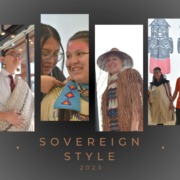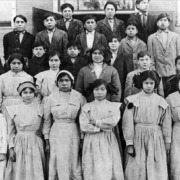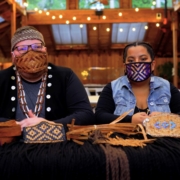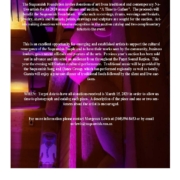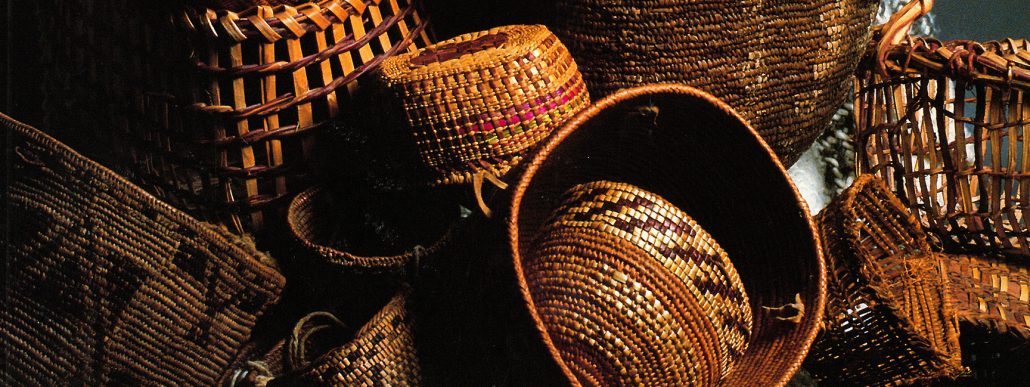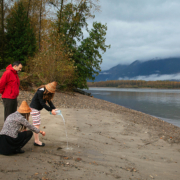The official blog of the Suquamish Foundation.
Suquamish Tribe’s 2022 charitable giving approaches $1 million
Most help goes to Kitsap County organizations
Lawrence Devlin, a veteran with KC Help, refurbishes electric wheelchairs, hospital beds, and other medical equipment in his garage and donates them to local residents in need. Elsewhere in Kitsap County, a small group of moms works to make sure new mothers get support during the critical first months of their babies’ lives. When teachers need extra help to enrich their students’ learning, the North Kitsap Schools Foundation is there to help with small grants.
These are just three among dozens of local groups who have received support from the Suquamish Tribe. Much of this giving happens via the Tribe’s charitable nonprofit, the Suquamish Foundation. In the third quarter of 2022 alone, the Suquamish Foundation donated $150,437 to charitable organizations, schools, Native American groups, event sponsorships, and civic organizations, mostly in Kitsap County. The Suquamish Foundation’s total giving for the year was $530,876.
The Tribe’s business ventures, which operate under the Port Madison Enterprises (PME) umbrella, also contribute generously. PME donated an additional $222,164 to local groups, in 2022.
Suquamish Tribal government donated another $210,000 to area first responders.
Total funding from the Tribe’s foundation, enterprises, and government totaled more than $960,000 in 2022.
The Suquamish Foundation: The Tribe’s nonprofit arm
The Suquamish Tribe’s Foundation is a tribally chartered non-profit that contributes each quarter to groups that support the quality of life, environment, and culture of the central Puget Sound region.
Some of the Foundation’s largest ongoing gifts go to Kitsap Strong.
“The Tribe offers essential core funding we rely on to do the long-term innovative work of forming healthy relationships within ourselves and with others,” says Cristina Roark, Kitsap Strong Director, Community Innovation. “With the Suquamish Tribe’s ongoing support, Kitsap Strong is able to help all people in the Kitsap community heal from intergenerational trauma and toxic stress. This work — based on the latest research around protective factors and the Indigenous wisdom of our ancestors — helps build individual hope and community resilience.”
The Tribe also contributes matching funds to Kitsap Great Give, as it has since the first year of the group’s countywide funding campaign.
These matching grants are designed to support community contributions that strengthen Kitsap County by encouraging a spirit of reciprocity, says Suquamish Foundation Director Robin L.W. Sigo.
“The Tribe encourages people to give local,” Sigo said. “We want to see funding go where area residents want the support to go.”
Addressing pandemic impacts on area nonprofits
Requests for support received by the Suquamish Foundation this year reveal some of the lasting impacts of the pandemic, according to Sigo. Many area nonprofits, civic groups, and schools were unable to hold the fundraising events they relied on for support prior to COVID, so some were scrambling to make up for the lost revenue.
Meanwhile, low-wage workers, and those struggling with high housing, food, and energy bills were hit hard by the pandemic. And many already vulnerable before COVID faced even greater challenges with mental health and substance abuse.
“The Suquamish Tribe worked hard to do our part to help fill the gaps,” Sigo said. “Many of the groups we fund are small, but they make a big difference to the people they support.”
Suquamish Tribe giving extended beyond Kitsap County, including areas that are part of the Tribe’s traditional territory in Seattle and beyond. For example, one donation went to the SeaTac USO, which offers military service members and their families a place for rest and refreshment when traveling.
The Foundation also help fund the Seattle Aquarium’s planned new Ocean Pavilion.
“Their vision aligns with ours in terms of protecting the Salish Sea and the ocean as a whole,” said Sigo. The pavilion is designed to offer an experience of ocean life to visitors while supporting efforts to conserve the marine environment.
The Foundation also contributed to Western Washington University’s planned longhouse, which will offer a space for indigenous students and others to learn about the state’s tribal nations and diverse cultures.
“Western Washington University is located on Indian traditional land, but there was no place for indigenous students to gather,” Sigo noted. Like the wǝɫǝbʔaltxʷ (the Intellectual House) on the University of Washington campus, the Western Washington longhouse will reflect Coast Salish design, and will support Native students by providing gatherings spaces and promoting cultural understanding.
PME helps enhance community quality of life
In addition to the Suquamish Foundation, the Tribe’s business arm is also a regular contributor to local organizations and charities.
In 2022, the Port Madison Enterprises supported Visit Kitsap, the Mike Tice Foundation, the Rise Up Academy, the Silverdale Rotary, Kitsap Great Give, the Kitsap County Fair, and Kids in Concert, among others. In all, PME gifts and sponsorships totaled $222,164 so far this year.
“As one of the largest employers in Kitsap County, our contributions are aimed at enhancing the quality of life in this community for our employees, customers, and future generations who will come after us,” said Rion Ramierez, CEO of Port Madison Enterprises.
PME includes the Clearwater Casino Resort, the White Horse Golf Club, Kiana Lodge, PME Retail (including gas stations), PME Construction, and the Suquamish Evergreen Corporation, which includes Agate Dreams and Tokem Cannabis. The PME board is appointed by the Suquamish Tribal Council.
Funding Regional First Responders
Separately, the Suquamish Tribe also made $210,000 in direct payments to area first responders in 2022. The Bainbridge and Poulsbo police and fire departments received funding along with the Kitsap County sheriff, North Kitsap Fire and Rescue, the Washington State Patrol, and the Suquamish Police. A multi-jurisdictional training program for police and fire districts also received support. The payments take place in alternate years as part of the Tribe’s gaming compact with the state of Washington.
Forsman urges action on Indian Boarding Schools Commission
Suquamish Tribe Chairman Leonard Forsman called on Congress to establish a Truth and Healing Commission on Indian Boarding Schools in an op-ed published today in the Seattle Times.
The call for action comes on Orange T-Shirt Day or — more formally — Day of Remembrance for Indian Boarding Schools.
“We need to learn more, including the number of children forced to attend the schools, the number who were abused, died or went missing,” writes Forsman. “And we need to know the long-term impacts on the children and the families of children who were forced to attend the Indian Boarding Schools. The Truth and Healing Commission can help with this much-needed investigation.”
Forsman also said more work is needed in identifying the best ways to address the trauma inflicted on Native communities during the boarding school era.
“Many of the students adapted, endured and found ways to overcome and succeed within the system, and became mentors and leaders of their tribal nations despite the intent of the boarding school system. Still, many suffered in the past and many former students and their offspring continue to struggle today,” writes Forsman. “Anger and resentment are justified, but we must commit ourselves to the healing process.”
You can read Forsman’s full column here.
Suquamish Foundation Premieres Sovereign Style 2020 Video
Masks of Resilience and Protection
Call for Artists for 2020 “A Time to Gather” Benefit Dinner Auction
The Suquamish Foundation invites donations of art from traditional and contemporary Native artists for its 2020 annual dinner and auction, “A Time to Gather.” The proceeds will benefit the Suquamish Foundation. Works such as carvings, drums, weavings and baskets, jewelry, shawls and blankets, prints, drawings and sculpture are sought for the auction. Artists making donations will receive recognition in the auction catalog and two complimentary tickets to the event.
This is an excellent opportunity for emerging and established artists to support the cultural resurgence of the Suquamish People and to have their works seen by the community, business leaders, government officials and patrons of the arts. Previous year’s auction has been sold out in advance and attracted an audience from throughout the Puget Sound Region. Our guests will enjoy a gourmet dinner of traditional foods followed by the silent and live auctions.
WHEN: Target date to have all donations received is by March 15th, 2020 in order to allow us time to photograph and catalog each piece. A description of the piece and one or two sentences about the artist is encouraged.
For more information please contact Margeaux Lewis at (360)394-8453 or by email mrlewis@suquamish.nsn.us
Call To Artists: Artists Needed for 2019 A Time to Gather
Call for Artists for 2019 “A Time to Gather” Benefit Dinner Auction
The Suquamish Foundation invites donations of art from traditional and contemporary Native artists for its 2019 annual dinner and auction, “A Time to Gather”. The proceeds will benefit the Suquamish Foundation. Works such as carvings, drums, weavings and baskets, jewelry, shawls and blankets, prints, drawings and sculpture are sought for the auction. Artists making donations will receive recognition in the auction catalog and two complimentary tickets to the event.
This is an excellent opportunity for emerging and established artists to support the cultural resurgence of the Suquamish People and to have their works seen by the community, business leaders, government officials and patrons of the arts. Previous year’s auction has been sold out in advance and attracted an audience from throughout the Puget Sound Region. This year the evening will feature a cultural performance. Traditional music will be provided by the Suquamish Song and Dance Group, which has performed regionally as well as locally. Guests will enjoy a gourmet dinner of traditional foods followed by the silent and live auctions.
WHEN: Target date to have all donations received is April 15, 2019 in order to allow us time to photograph and catalog each piece. A description of the piece and one or two sentences about the artist is encouraged.
For more information please contact Margeaux Lewis at (360)394-8453 or by email mrlewis@suquamish.nsn.us
Suquamish Foundation Announces Date for A Time to Gather
Please join us at the beautiful Kiana Lodge on Agate Passage for a springtime evening rich with friendship, fun, great food, music and entertainment and our exciting, signature auction event on April 27, 2019. Our auction features original traditional and contemporary Native art as well as our unique cultural experience items such as a local archaeology tour, an indigenous food cooking class or a canoe voyage around Agate Passage.
Thanks to the generosity of those who participated in our annual event in the past and are involved this year, we are able to continue to strengthen the cultural resurgence of the Suquamish Tribal community as well as the friendships of our fellow non-profits, neighbors, and visitors. We will journey into the future by honoring the past and we guarantee a payback of a brighter future to share.
The Suquamish Foundation, created in 2005, is the non-profit arm of the Suquamish Tribe and is dedicated to supporting the culture, education, environment, health and vitality of the Tribal community and its neighbors. We completed the inspiring Building for Cultural Resurgence capital campaign that built our Suquamish Museum, Community House, Early Learning Center, Veteran’s Memorial, Health and Fitness Center, Community Ball Field and Community Dock. We also award over $300,000 annually to schools and non-profit organizations that serve Kitsap County.
To purchase tickets to our annual fundraising event, visit the foundation online by clicking here or contact Margeaux Lewis at mrlewis@suquamish.nsn.us or by phone at (360)394-8453. Tickets go on sale by February 15, 2019.
Return of the Shores
 The Suquamish Tribe is celebrating the return of 36 acres located on the shores of the Port Madison Indian Reservation.
The Suquamish Tribe is celebrating the return of 36 acres located on the shores of the Port Madison Indian Reservation.
“For us, it’s a homecoming. We will once again be able to walk the lands in the heart of our community,” said Suquamish Tribe Cultural Coordinator Tina Jackson.
On May 31, 2018 the 50-year lease of the area known as Suquamish Shores expires, returning control of the property to the Suquamish Tribe. Tribal government officials have been anticipating the return for more than two decades, working closely with the Tribal community to create a comprehensive long-term plan for the area.
“Our community has been clear in their desire to create a multi-use space, along with additional housing and facilities for our elders,” said Suquamish Tribal Council Vice-Chairman Bardow Lewis.
As part of the plan, the property will be redeveloped in three phases over the next ten years. Work on phase one, which includes community spaces, is scheduled to begin in late summer 2018. Plans call for a park near the Suquamish waterfront, along with walking trails and a culturally-themed playground connecting the Suquamish Museum to the Veteran’s Monument near the House of Awakened Culture.
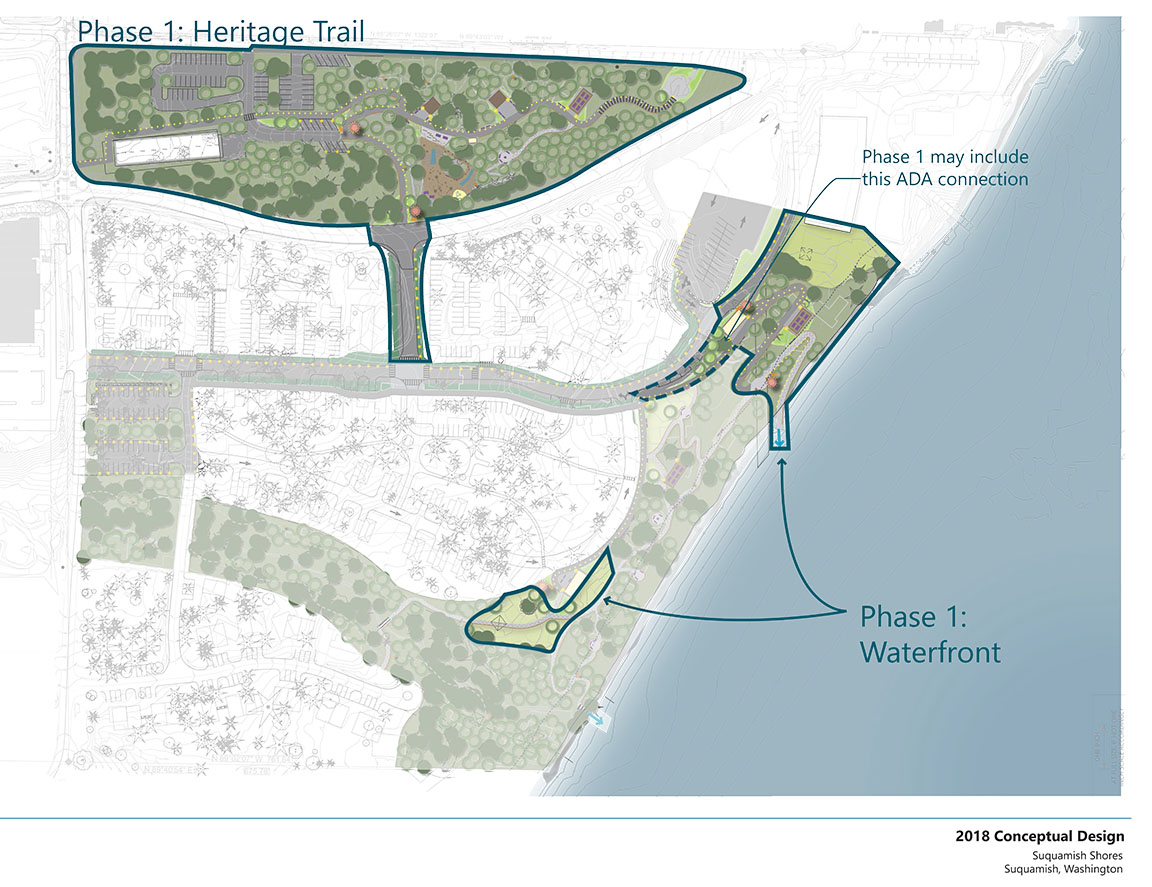
A preliminary concept rendering of Phase 1 includes a heritage trail and cultural use areas.
“We have a lot of site preparation to do. There are a number of homes in disrepair that have to be removed before rebuilding can take place,” said Suquamish Tribe Department of Community Development Director Scott Crowell.
Construction of the first phase is expected to continue through 2019, with a scheduled completion date in 2020. Designs for phases two and three are still being finalized and will include staged elders facilities and housing.
“It makes sense that the Suquamish People would want to ensure the property is redeveloped for recreation, housing and cultural use. Traditionally, a large portion of that property was used as a community gathering space. A ballfield was built there in the late 1800’s and was utilized by the community for several decades before the property was leased,” said Suquamish Tribe Historic Preservation Officer Dennis Lewarch.
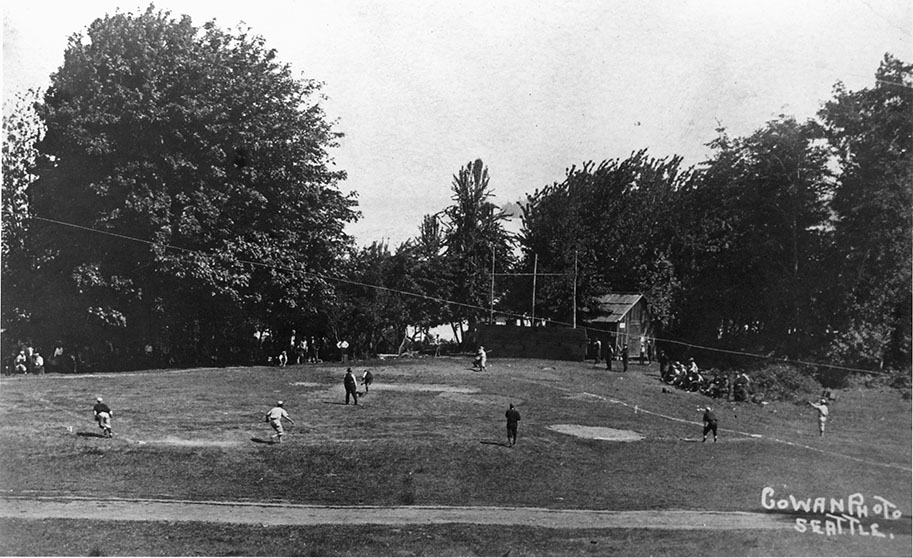
Early 1900s’ photograph of a baseball game at the original Suquamish Ballfield. Courtesy of the Suquamish Museum.
The subject of the lease has been a contentious issue in the Suquamish Tribal community over the last five decades. Many members voiced their opposition to the move in Tribal Council meetings when the lease was being considered in 1967. However, faced with limited resources and the need to provide basic government services, the Suquamish Tribal Council determined the lease was the best course of action for the future of the Tribe.
“Back then, we didn’t have any money at all. Tribal Council Meetings were held in people’s living rooms. Paperwork, applications, travel to BIA offices in Everett and Portland just to maintain our treaty rights; it was all done by volunteers, on our own time with our own money,” said Tribal Elder Rich Demain, who served on Tribal Council in 1961.
The agreement for the 50-year lease began in July 1968, with Chief Seattle Properties, a non-tribal corporation, paying the Tribe $7,250 annually for the land. The firm then profited from sub-leasing parcels to individuals looking to build on the waterfront property. Chief Seattle Properties later walked away from the project, leaving those who built homes and the Tribe to sort out the details of their individual leases- a process that would take several years and test the relationships between Tribal Members and their neighbors living on the Port Madison Indian Reservation.
Read the Seattle Time 2007 guest editorial on the Suquamish Shores
“It’s certainly been a long road. I have looked forward to this day for 50 years, and will celebrate when we will be in control of our own resources again,” said Tribal Elder Ed Carriere.


